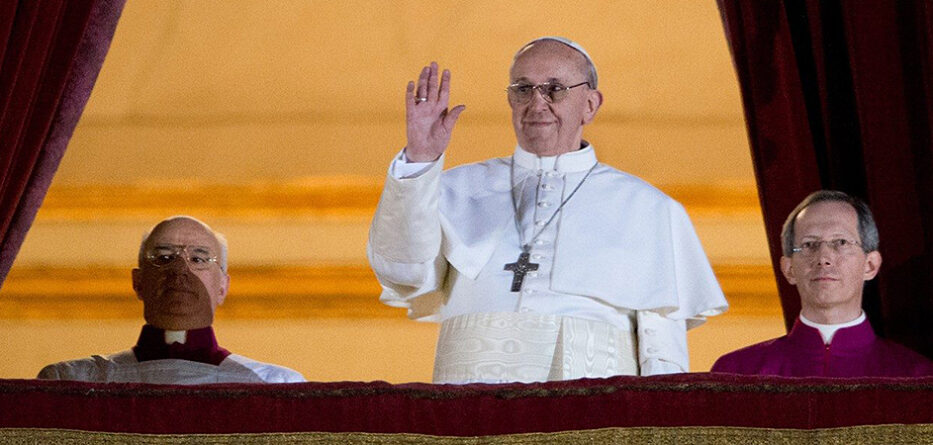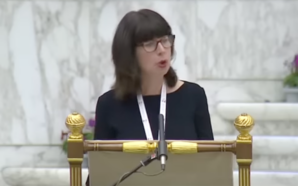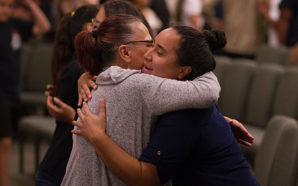The Church celebrates the Solemnity of the Annunciation each year on March 25. The date was chosen since the very beginning for two reasons: it falls nine months before we celebrate the birth of Jesus Christ, and it conforms to an ancient belief that God became incarnate during the spring equinox.
However, our liturgical texts and prayers for this feast tend to put more emphasis on the Virgin Mary’s free-will consent (her fiat) to bear the savior of the world than on the fact that this is the moment God begins to take flesh in her womb. We could call this the feast of Jesus’ conception. But Danilo Sartor, a priest of the Servites of Mary who taught liturgy for many years in Rome, says it would better to change it to the “Feast of the Incarnation”. In his words, this would best “get to the heart of the mystery that is being celebrated”.
A mystery and a scandal
More than a mystery, the incarnation is a scandal to many. God who becomes a human being? The consequences of that threaten our safe and tidy “God in a box” mentality that we are so often tempted to embrace and find comfort in. It’s a God who is detached from the messiness of our world. He (always “He”) is encountered in ritualised prayer formulas, in church buildings (but only those that “look” like churches), in tabernacles or gold monstrances… God who becomes flesh like us? This is the Jesus that scandalised many in the early Church (and led to schisms) and scandalises many today.”
One and the same person — this must be said over and over again — is truly the Son of God and truly the Son of humankind,” wrote Saint Leo the Great in the 5th century. “(Jesus) is God in the virtue of the fact that in the beginning was the Word, and the Word was with God, and the Word was God. He is human in virtue of the fact that the Word was made flesh and dwelt among us.”
The incarnation is at the very core of what we believe as followers of Jesus the Christ. Believing in a God who becomes part of God’s own creation — and, even more, the implications of that — can seem not to be other-worldly and “sacral” enough for us. We prefer to skip over the entire earthly (fleshly) life of Christ in our creedal statements.
The “great comma”
As Richard Rohr likes to point out, “Have you ever noticed the huge leap the creed makes between ‘born of the Virgin Mary’ and ‘suffered under Pontius Pilate’?” This leap is marked by the “great comma”, which he says should lead us to ask come serious questions: “Did all the things Jesus said and did in those years not count for much? Were they nothing to ‘believe’ in? Was it only his birth and death that mattered? Does the gap in some way explain Christianity’s often dismal record of imitating Jesus’ actual life and teaching?”
It seems to me that Pope Francis does not fall into this trap. And, ironically, it’s why some Catholics are cool towards him and his evangelical, incarnate way of evangelizing and renewing the Church.
“The joy of the gospel fills the hearts and lives of all who encounter Jesus. Those who accept his offer of salvation are set free from sin, sorrow, inner emptiness and loneliness. With Christ, joy is constantly born anew.” These are the words that begin Evangelii Gaudium, the apostolic exhortation Francis published in 2013 shortly after his election to the papacy.
“In this exhortation I wish to encourage the Christian faithful to embark upon a new chapter of evangelisation marked by this joy, while pointing out new paths for the Church’s journey in years to come,” he continues in this document. It remains the most important text he’s issued during his ten years as pope.”
Realities are greater than ideas
“But the type of evangelisation Francis is talking about — and that which he has modelled throughout his pontificate — has nothing to do with proselytisation (i.e. trying any means to force, scare or trick people into becoming part of a particular group or ideology). And it has even less to do with presenting Christian faith has something other-worldly, pie-in-the-sky or detached from human reality.
This is one of the reasons the 86-year-old pope continues to upset those Catholics who see their religion more as a form of private piety and devotion (even if they fulfil that in the presence of others on Sundays) than a living, incarnate faith that poses communal, societal and ethical demands and obligations. Francis would say it is a faith that has to do with finding God and responding to God within the messy realities of our lives and our world, not in some lofty and idealised realm that is outside of such realities.
“Realities are greater than ideas,” he says in Evangelii Gaudium. “This principle has to do with incarnation of the word and its being put into practice… The principle of reality, of a word already made flesh and constantly striving to take flesh anew, is essential to evangelisation,” he continues. And here’s the essence of the type of incarnate reality he’s talking about:
It helps us to see that the Church’s history is a history of salvation, to be mindful of those saints who inculturated the Gospel in the life of our peoples and to reap the fruits of the Church’s rich bimillennial tradition, without pretending to come up with a system of thought detached from this treasury, as if we wanted to reinvent the Gospel. At the same time, this principle impels us to put the word into practice, to perform works of justice and charity which make that word fruitful. Not to put the word into practice, not to make it reality, is to build on sand, to remain in the realm of pure ideas and to end up in a lifeless and unfruitful self-centredness and gnosticism (EG, 233).
A pope who never speaks of Jesus?
It is always curious to hear people accuse Francis of not speaking enough about Jesus, but focusing more on social issues like poverty, war, the environment and so forth. But it is, in fact, through these realities that he is challenging us to the “put the word into practice” and make it “fruitful”. He points out that scripture makes it clear that there is an “inseparable bond between our acceptance of the message of salvation and genuine fraternal love”. But the consequences of this is evidently not clear to those who accuse the pope of not talking enough about Jesus.
“God’s word teaches that our brothers and sisters are the prolongation of the incarnation for each of us: ‘As you did it to one of these, the least of my brethren, you did it to me’ (Mt 25:40),” he point out in his exhortation (EG, 179).
The pope is showing, by example, that the Christian faith has social consequences. But it is ludicrous and an outright lie to say he does not preach or talk enough about Jesus. Francis is actually extremely devoted to prayer, even in a traditional way; but he correctly sees that the devotion is only one part of the equation for a Christian life.
“More than just simple doctrinal and moral transmission”
“The Church urgently needs the deep breath of prayer, and to my great joy groups devoted to prayer and intercession, the prayerful reading of God’s word and the perpetual adoration of the Eucharist are growing at every level of ecclesial life,” he says further on in Evangelii Gaudium. “Even so, ‘we must reject the temptation to offer a privatised and individualistic spirituality which ill accords with the demands of charity, to say nothing of the implications of the incarnation’,” he adds, quoting none other than John Paul II! (EG 262).
“Evangelisation is more than just simple doctrinal and moral transmission. It is, first and foremost, witness – one cannot evangelise without witness – witness of the personal encounter with Jesus Christ, the Incarnate Word in which salvation is fulfilled,” Francis said at his most recent Wednesday general audience.
He upheld Evangelii Nuntiandi — the apostolic exhortation Paul VI issued back in 1975 — as “the magna carta of evangelisation in the contemporary world”, saying it is as topical as if it had been written yesterday. Francis then paraphrased the Second Vatican Council and said the Church, too, “has a constant need of being evangelised, she needs to read the Gospel, to pray and to feel the force of the Spirit changing her heart”.
And that is all done in the messy reality of our world here and now.
In dialogue with the contemporary world
“A Church that evangelises herself in order to evangelise is a Church that, guided by the Holy Spirit, is required to walk a demanding path, a path of conversion and renewal,” the Jesuit pope continued. “This also entails the ability to change the ways of understanding and living its evangelising presence in history, avoiding taking refuge in the protected zones of the logic of ‘it has always been done this way’… the refuges that cause the Church to sicken,” he added.
“The Church must go forward, she must grow continually… must be a Church that dialogically encounters the contemporary world, that weaves fraternal relationships, that generates spaces of encounter, implementing good practices of hospitality, of welcome, of recognition and integration of the other and of otherness, and that cares for the common home that is creation,” he said.
“That is, a Church… that dialogues with the contemporary world, but that encounters the Lord every day, and dialogues with the Lord, and allows the Holy Spirit, the agent of evangelisation, to enter,” he said.
Pope Francis believes it is a Church that incarnates the Word — the person and message of Jesus Christ — in today’s realities, not in “the realm of pure ideas” of how we’d like things to be. Evidently, that unsettles some folks.
Robert Mickens is the Editor in Chief of La Croix International and he has lived, studied and worked in Rome for 30 years. Over that time, he has studied at the Gregorian University, worked at Vatican Radio and been the Rome correspondent for the London Tablet. He regularly comments on CNN, the BBC and the Australian Broadcasting Corporation. His famous Letter From Rome, brings his unparalleled experience as senior Vatican correspondent for the London Tablet and founding editor of Global Pulse Magazine.
Reproduced with permission from La Croix International.








